Women's March Demonstrators Were Diverse but United, and ATTN: Talked to a Lot of Them
By:
They chanted slogans like "We need a leader, not a creepy tweeter" and "This is what democracy looks like!"
That was the scene at the Women's March in Washington on Saturday, which ATTN: attended and where we spoke with a diverse group of demonstrators representative of the at least half a million people who gathered to "send a bold message to our new government on their first day in office, and to the world that women's rights are human rights."
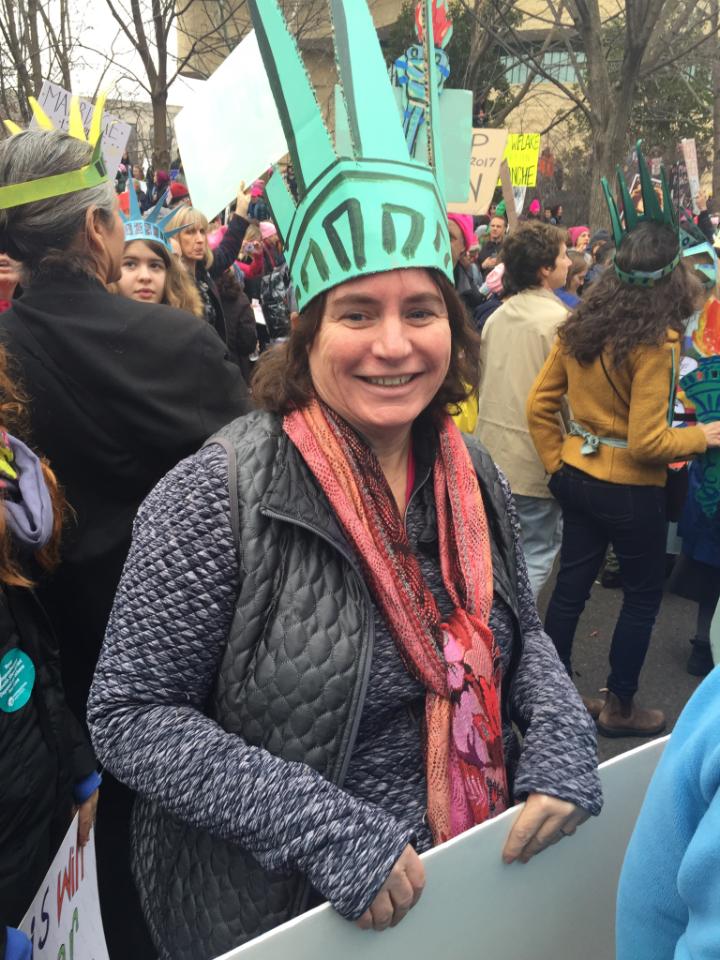 Natalia Rachel Singer
Natalia Rachel Singer
The Women's March on Washington was the first protest for retired attorney and Virginia native Eva Petko, 57.
"The first time I cast a vote for president, it was for Ronald Reagan," Petko told ATTN:. "Ever since, I've been one of the middle-of-the-road swing voters all candidates pursue — not a terribly political animal. I marched today because the issues of simple decency and respect for women, minorities, and all citizens that the new president regularly thumbs his nose at transcend partisanship."
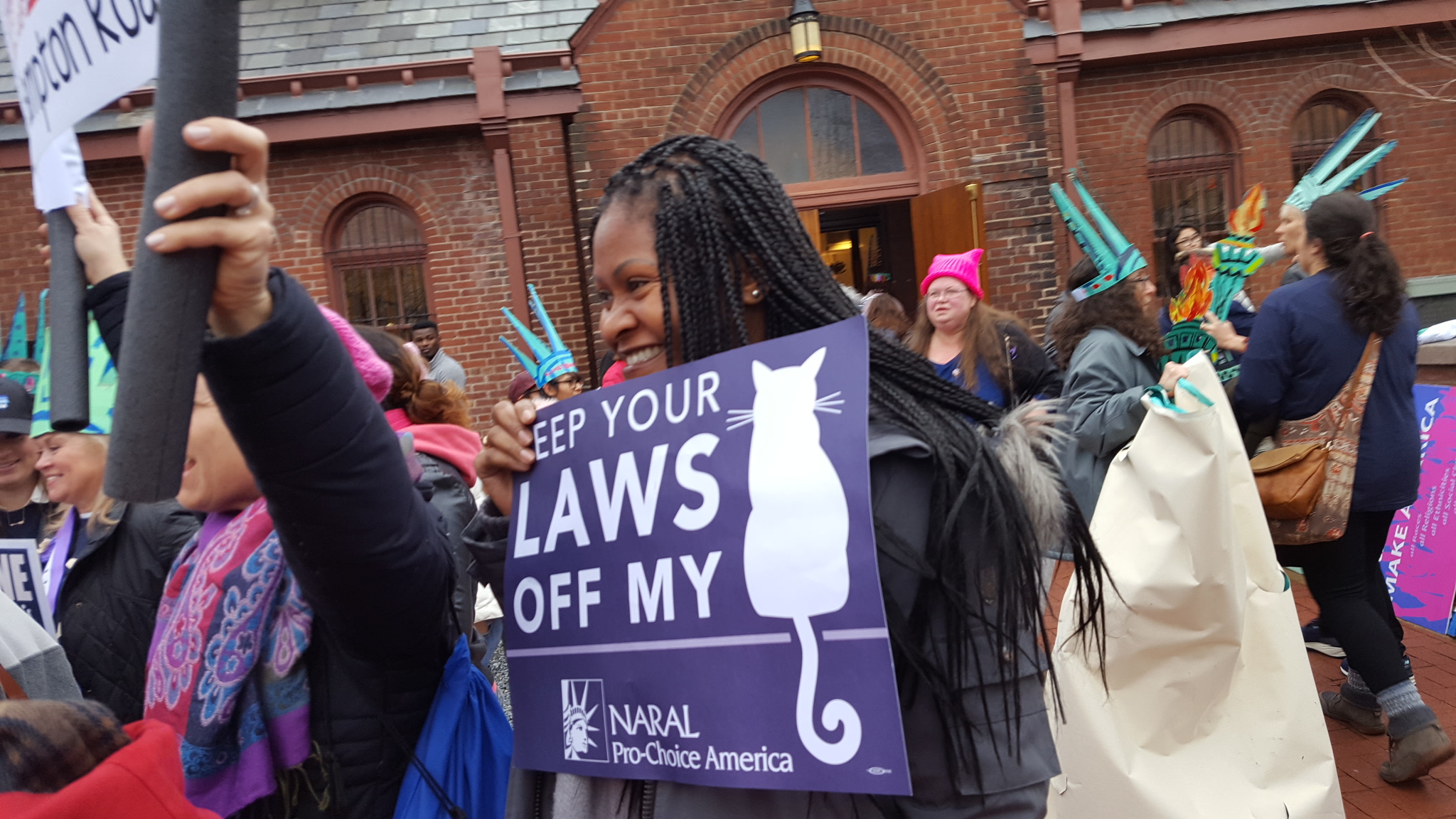 Natalia Rachel Singer
Natalia Rachel Singer
The Washington rally and march was sponsored by Planned Parenthood and the Natural Resources Defense Council, partnered with about 200 social justice groups and organizations, including NARAL, Emily's List, the ACLU, The American Federation of Teachers, United Healthcare Workers East, MoveOn.org, and Human Rights Campaign.
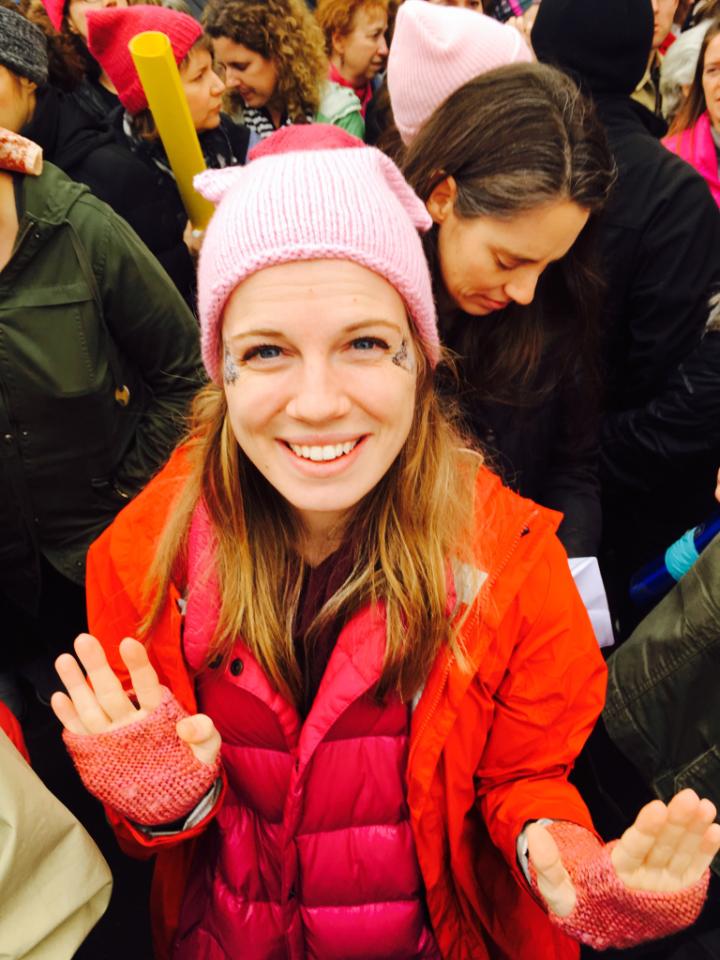 Natalia Rachel Singer
Natalia Rachel Singer
"I am marching for my mom, who wanted to attend but couldn't due to illness, and who taught me how to be a nasty woman," said Emma Cummings-Kreuger, 22, who works for a Washington public relations firm.
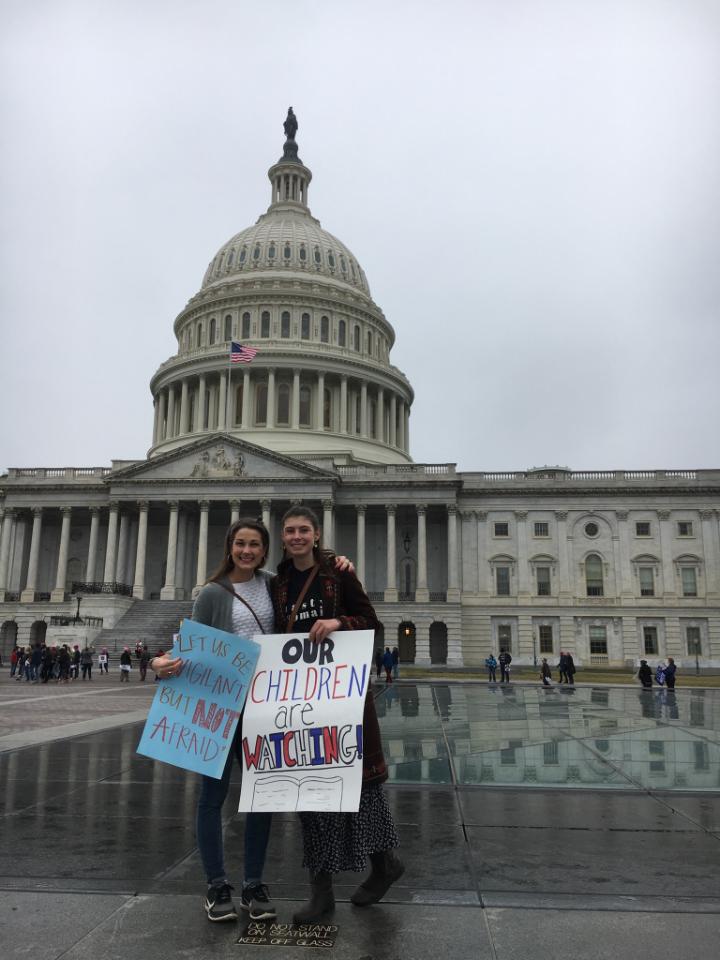 Natalia Rachel Singer
Natalia Rachel Singer
"I march because our nation's children need to know that this is not what the United States stands for," said Anna Kowanko, 22, from Saranac Lake, New York.
"That we are fighting for all of them.
"To show the world that we are as outraged as they are, and that we are not going to sit by and watch this happen," Kowanko said. "We will fight."
Sister marches took places in every state of the union and on all seven continents, including Antarctica. The Washington event reportedly drew more people than President Donald Trump's inauguration itself and was more than five times the size of the 1973 anti-inauguration march for Richard Nixon.
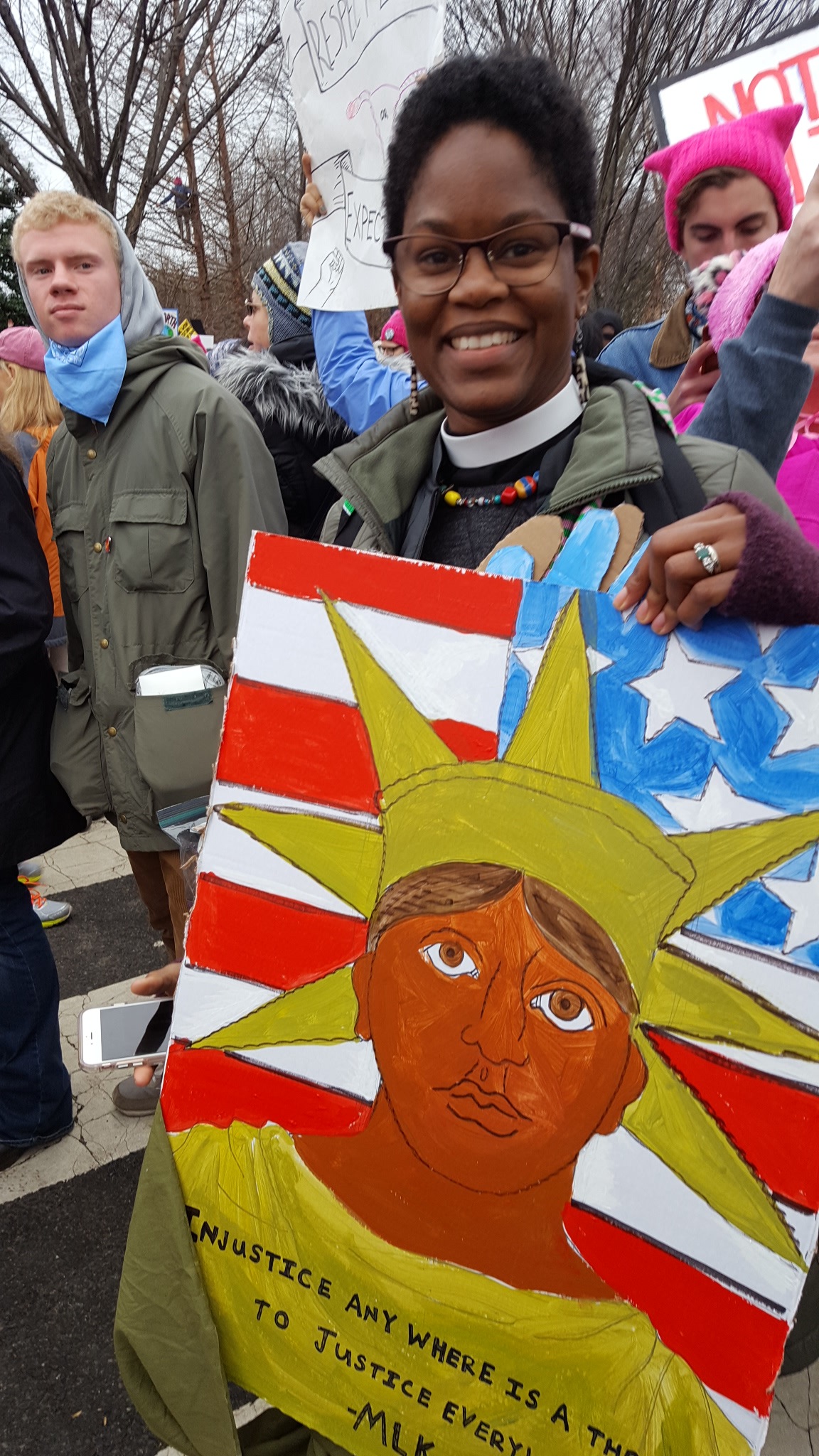 Natalia Rachel Singer
Natalia Rachel Singer
"I was curious to see what the spirit of community would be like here, women's spirits, all infused with the holy spirit," said the Rev. Hershey Mallette Stephens, minister of Trinity Church in New York City.
"I wanted to be with all kinds of different people with so many concerns and to see what happens when love brings us all together," Stephens added. "I just knew I would make new friends."
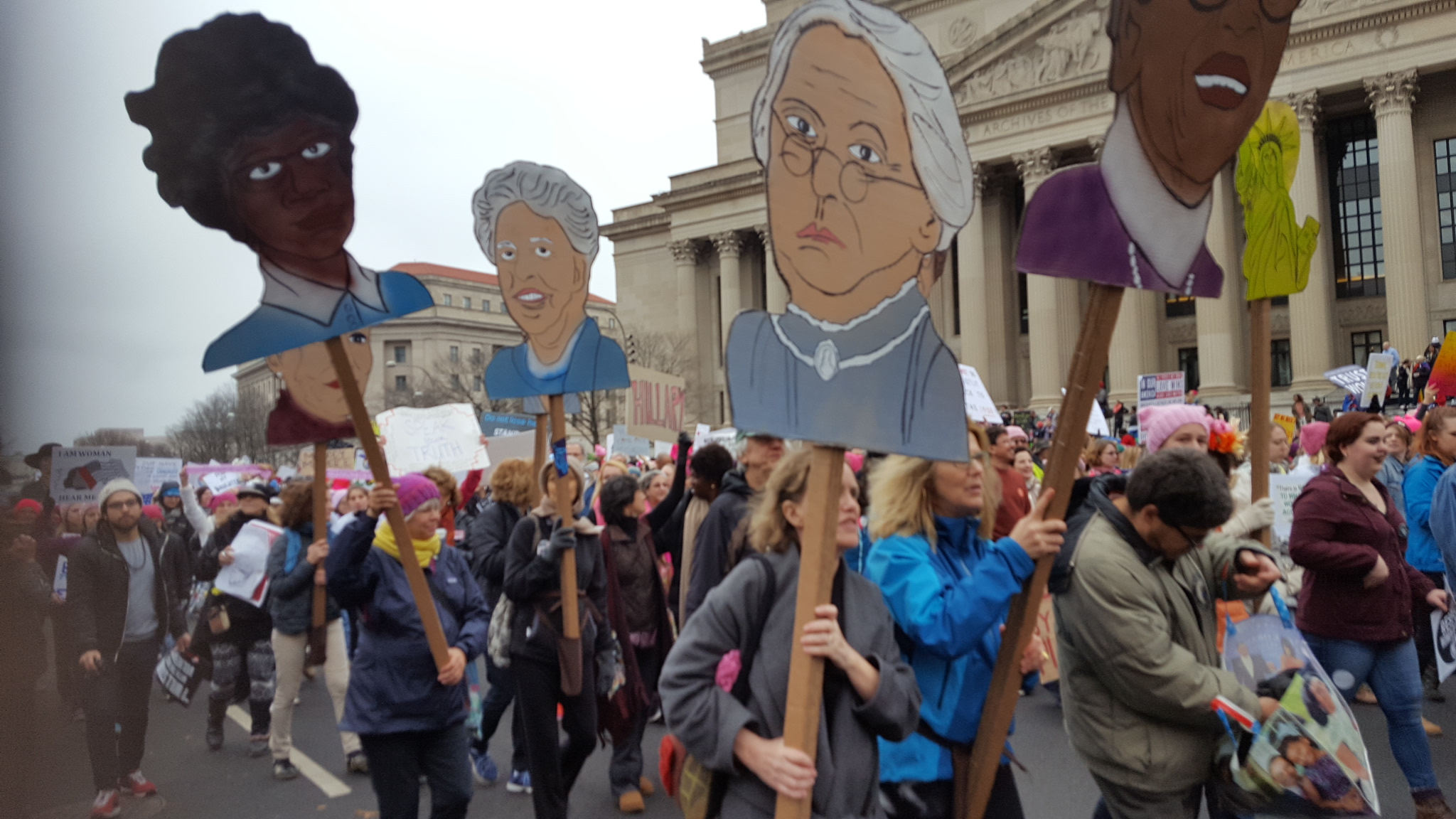 Natalia Rachel Singer
Natalia Rachel Singer
The march's guiding principles focused on intersectionality: "recognizing that women have intersecting identities and are therefore impacted by a multitude of social justice and human rights issues."
The chairs of the national march represented a diverse group of social justice movements, as did honorary co-chairs Angela Davis, Gloria Steinem, Harry Belafonte, Dolores Huerta, and LaDonna Harris. Steinem spoke at the rally, along with celebrities including filmmaker Michael Moore, Scarlett Johansson, America Ferrera, Madonna, and Ashley Judd.
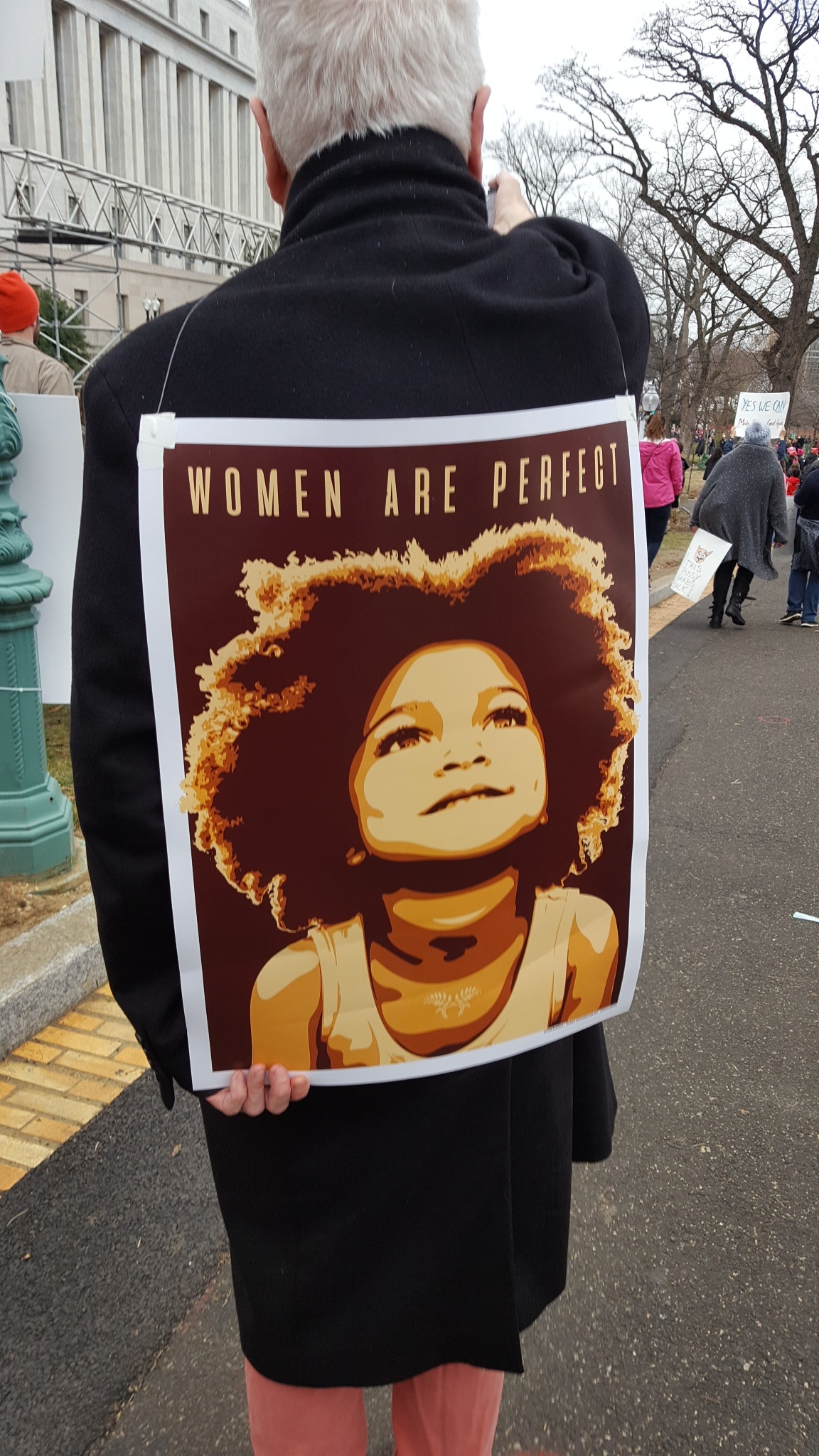 Natalia Rachel Singer
Natalia Rachel Singer
There were men there as well.
"I've got a lot of women in my life I'm here to support today," said Steffan Prosky, who described himself as an "old white guy" who teaches 3D animation in Maryland.
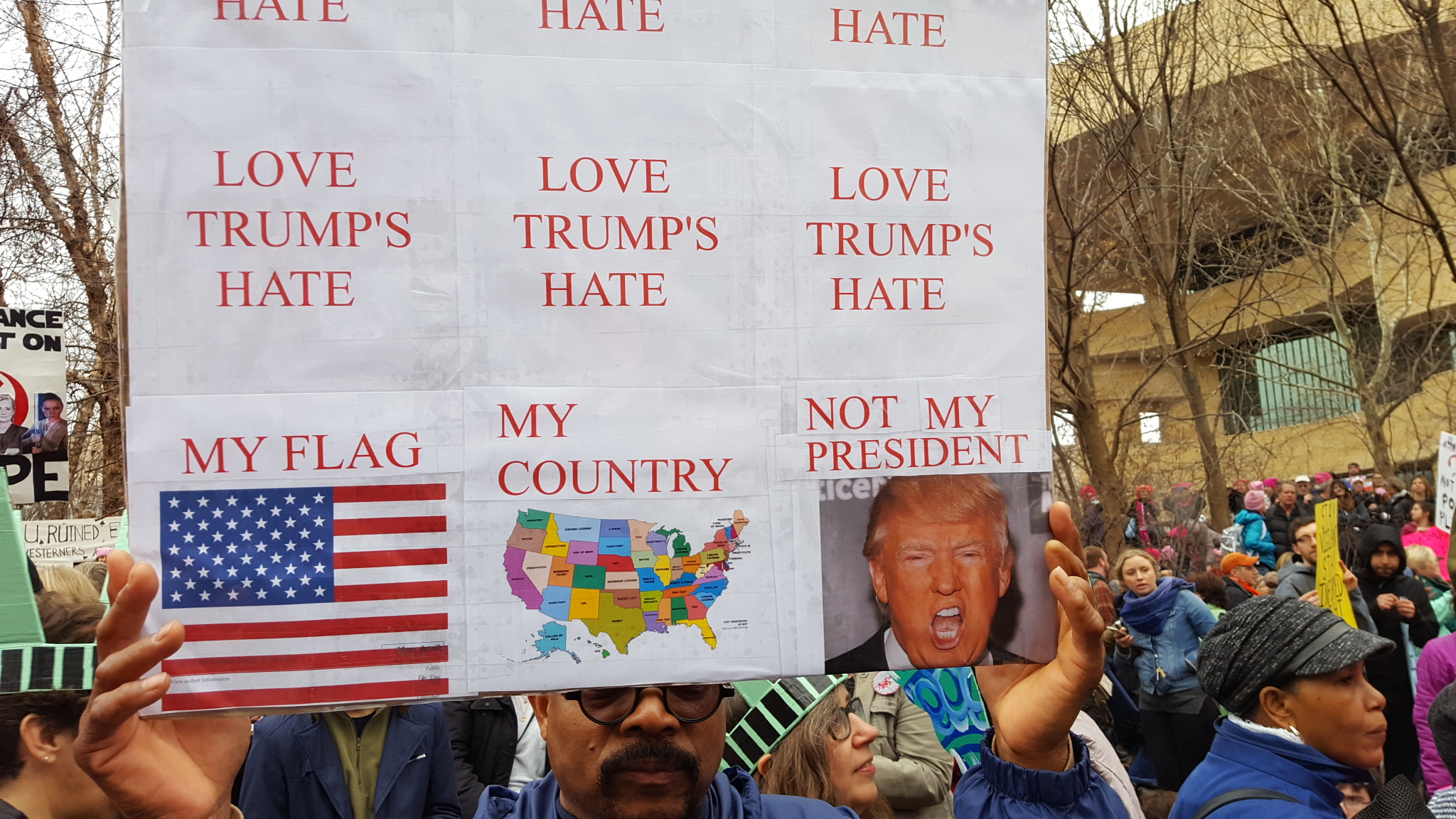 Natalia Rachel Singer
Natalia Rachel Singer
"We're living in some scary times about now," said Washington native Larry Woodard, 59. "I'm protesting the defunding of Planned Parenthood. I'm here on behalf of my three sisters, who couldn't be here today. I'm here to speak up for civil rights. Civil rights for all!"
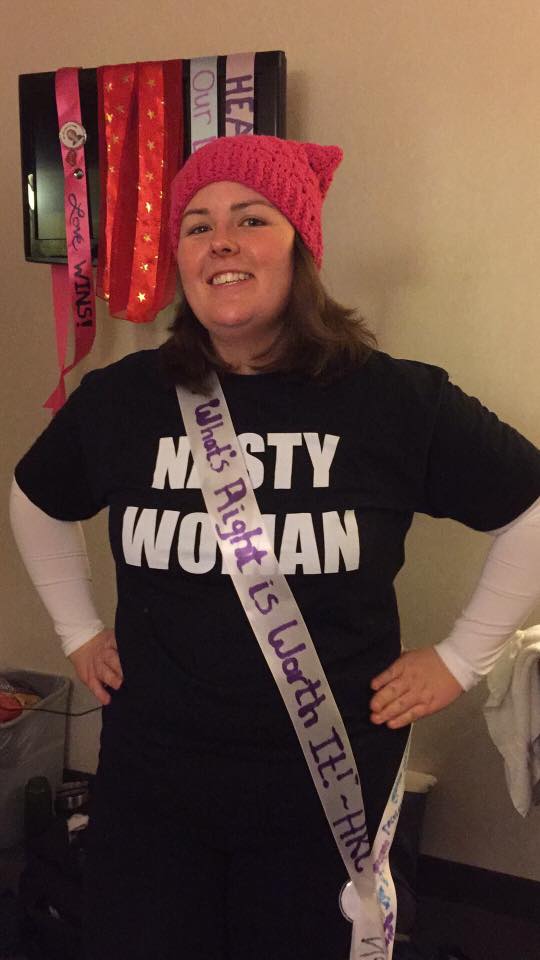 Jess Prody
Jess Prody
"I grew up in a conservative, predominantly white area of Minnesota, where the 'pull yourself up by the bootstraps' mantra was alive and well," said St. Lawrence University communications professor Jessica Prody, 33. "In college and grad school, I befriended people who didn't look like me, who grew up living lives different from mine, and I realized some people are given shorter bootstraps, and some people aren't even given boots.
"I listened to stories of people who had faced discrimination from teachers, police, business owners, and strangers walking down the street. I've heard the pain in their voices of being made to believe they do not matter," Prody added. "Some of the people I love most fiercely in this world are members of the LGBTQ community.
"I march because human rights are women's rights, and women's rights are human rights," Prody said.
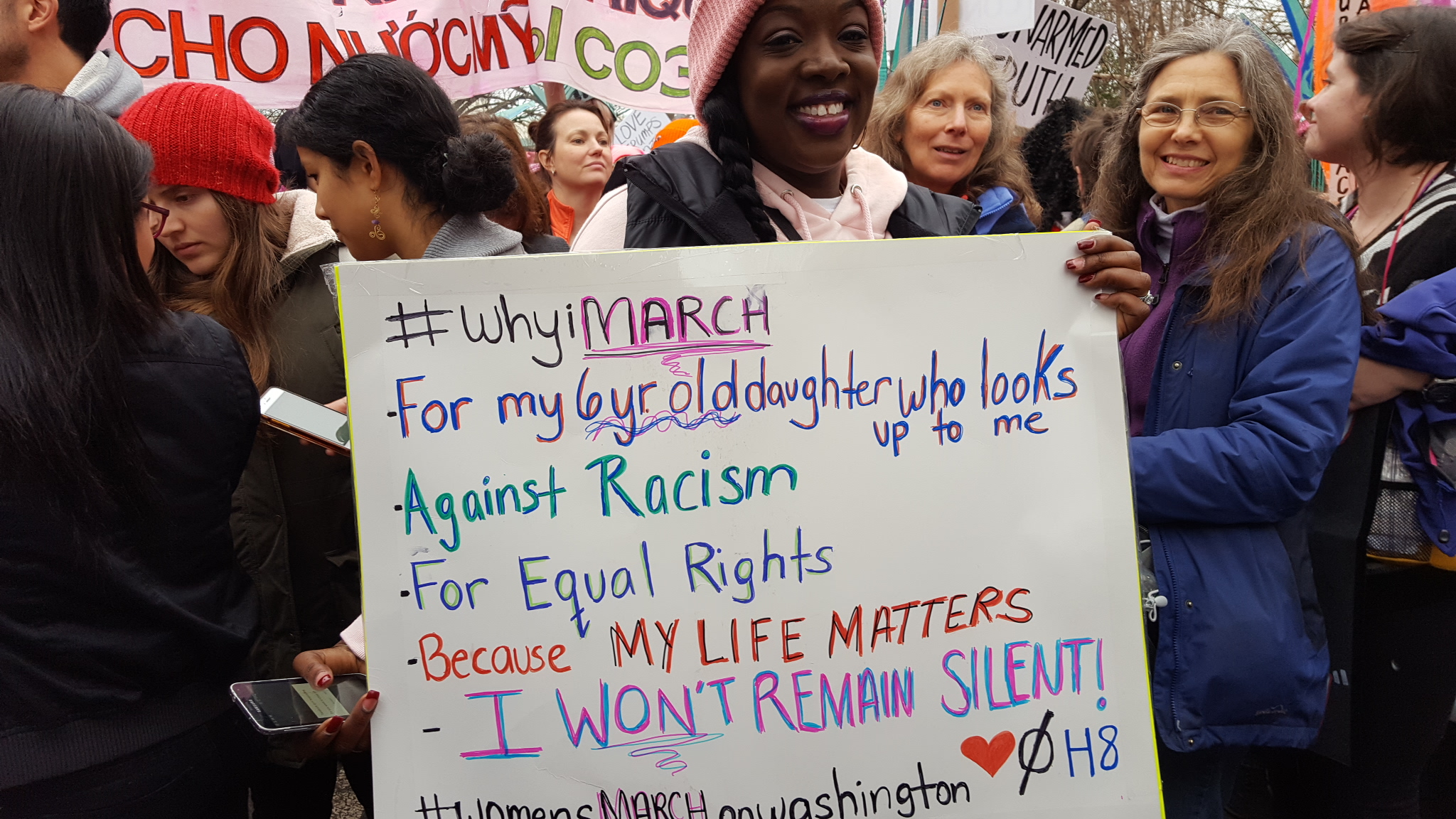 Natalia Rachel Singer
Natalia Rachel Singer
"I worked in social services for 15 years," said Washington native Amy Gyua-Moyer. "I am here to stand for those who cannot be here. We cannot run this country with such a divisive man."
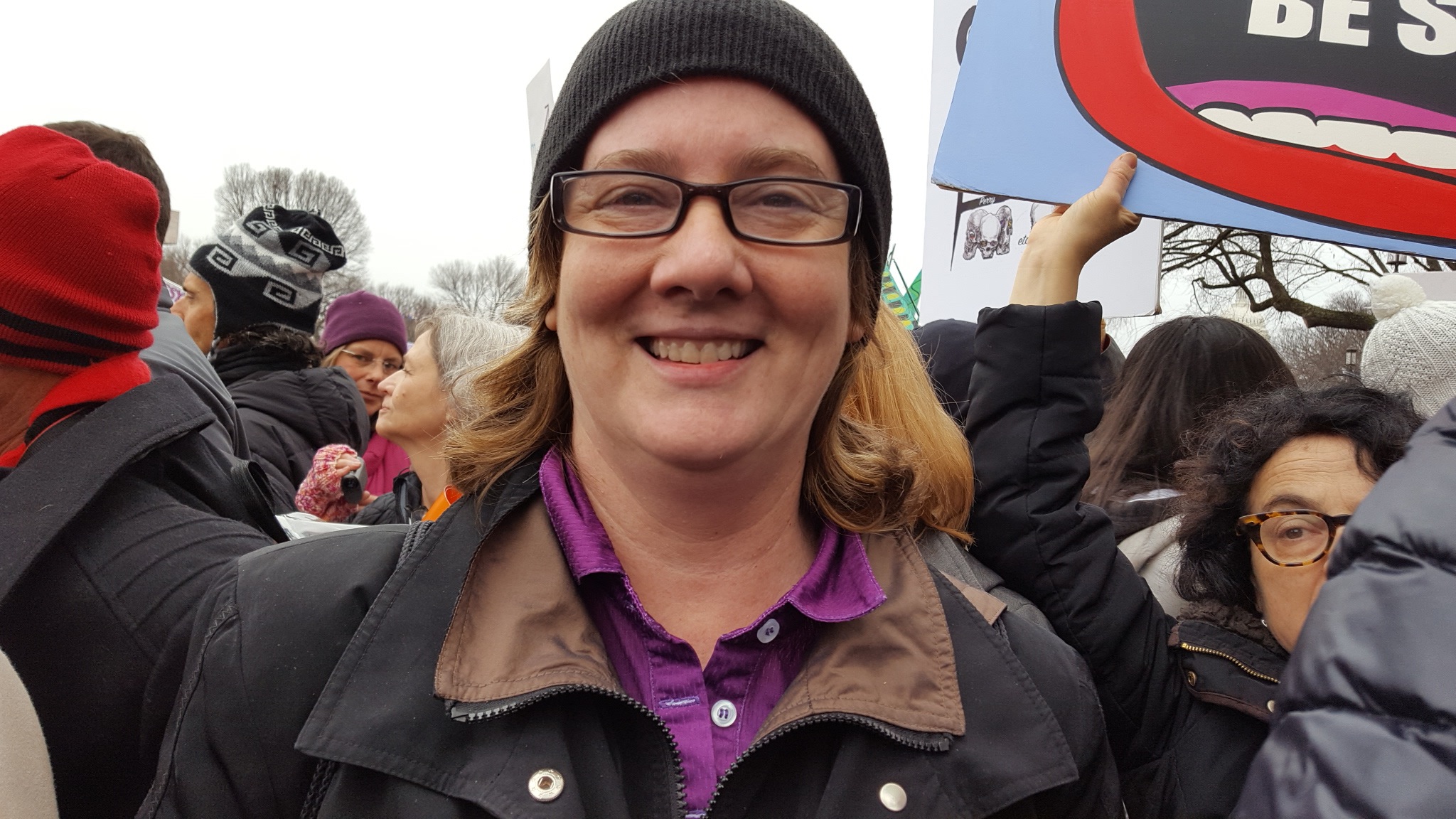 Natalia Rachel Singer
Natalia Rachel Singer
"I am here to show unity with all the people he's targeted," said Susan Ashworth of Des Moines, Iowa. "I think of my granddaughter, who is 5, and what a terrible role model he is."
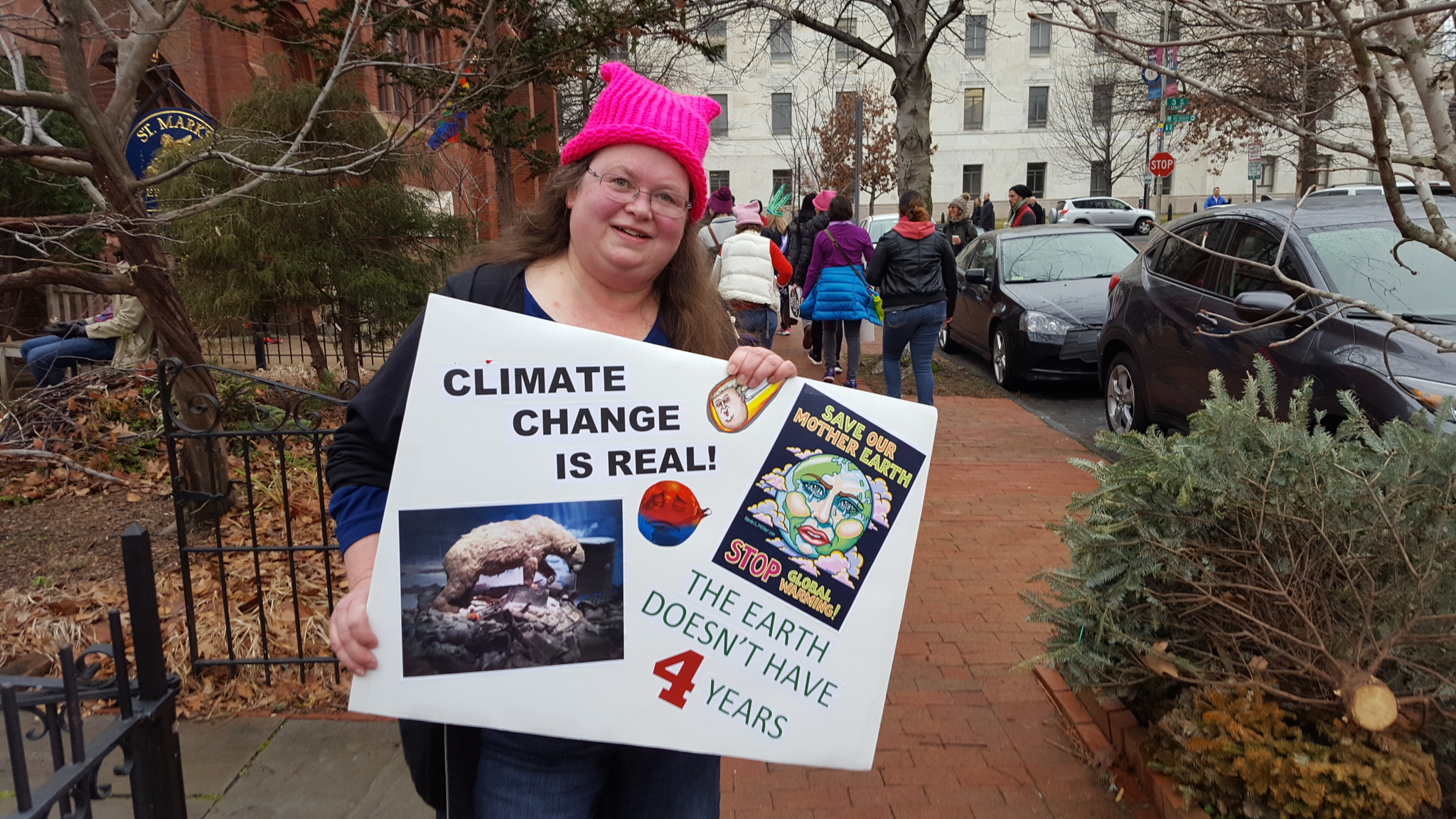 Natalia Rachel Singer
Natalia Rachel Singer
Sarah Doyle, from Norfolk, Virginia, marched to protest the fact that President Trump is a climate change denier. "I am here for the children," she said.
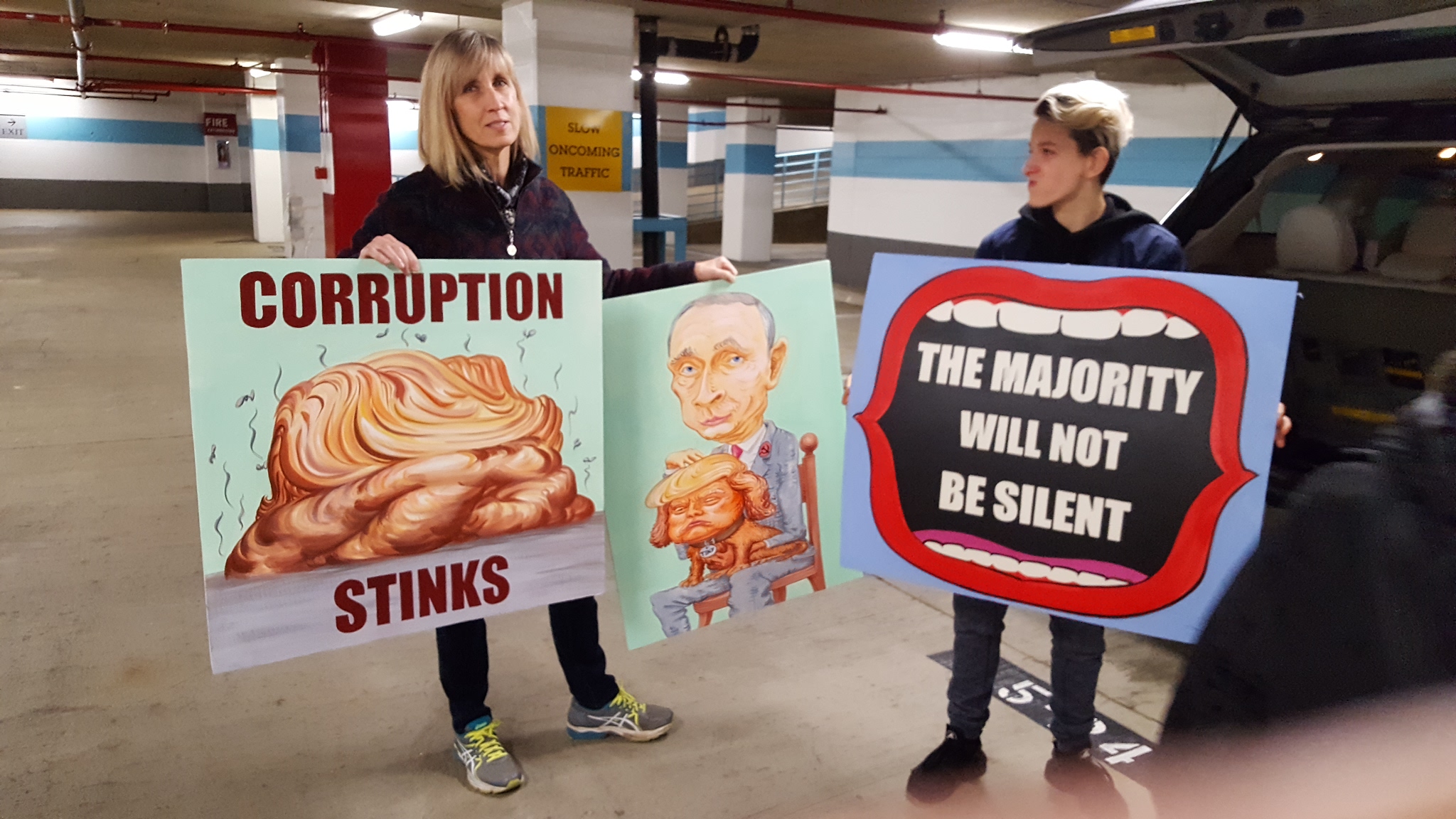 Natalia Rachel Singer
Natalia Rachel Singer
Nurse practitioner Sandy Stincic, 59, agreed.
"The president's denial of scientific fact regarding climate change scares me for the future of our planet and for everyone and everything on it," Stincic said.
"Another critical issue is health care," Stincic added. "I work in a public hospital in Cleveland, one of the poorest cities in the country, and the repeal of the ACA will hurt so many of the families I care for. To deny health coverage to a person because of a pre-existing condition is inhumane. That will be removed if the ACA is repealed."
Stincic met up with some of her family in Washington, including her 14-year-old nephew, Abe Esber, whose father, the artist James Esber, painted the posters they carried.
